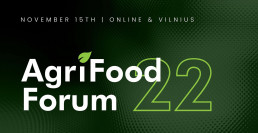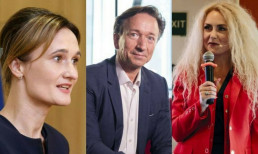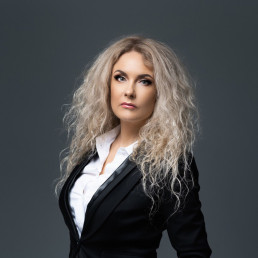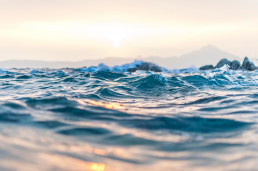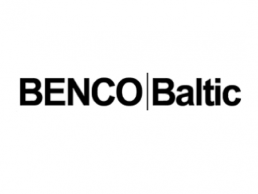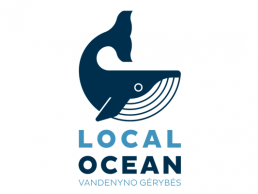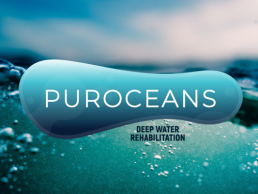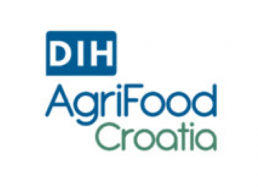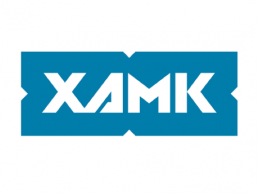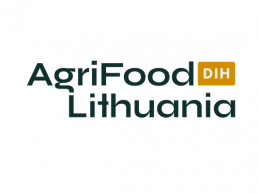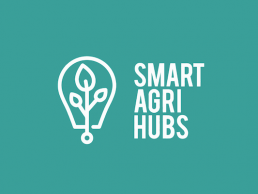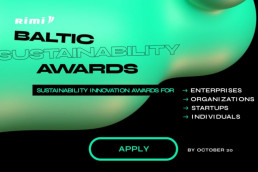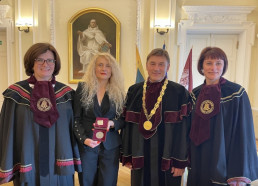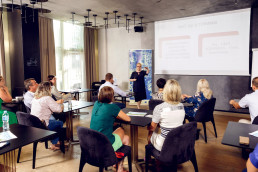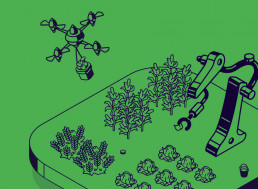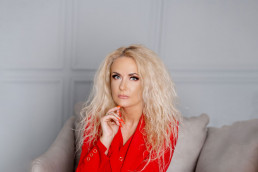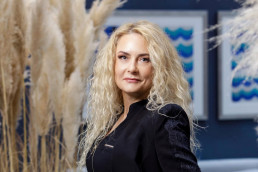A quick glance to at the AgriFood Forum 2022
Agrifood Lithuania, together with BIAC, is organizing the largest Baltic AgriFood Forum on the theme of "Peace for Food" in response to the global, multi-faceted agri-food crisis. The event also supports the Business at OECD initiative Peace for Food.
Agri-food accounts for around 7% of the GDP in each Baltic state. Ukraine is a major importer of food for companies in the sector, and Ukraine has one of the highest inflation rates in the EU. If agrifood companies stagnate, it will negatively impact other sectors and the unemployment rate. To ensure the availability of affordable and high-quality food for all without compromising sustainability obligations, this Forum will encourage discussion among national and international stakeholders and encourage the development of an action plan. Commitments like these will be based upon more sustainable, resilient, and healthier food systems.
Relevant and interesting themes related to agriculture will be discussed at the Forum, as well as possible answers and solutions to current agricultural challenges. A number of topics will include agriculture's importance in urban areas, smart farming, and the vision of the future consumer. There will also be a discussion on the vital importance of transforming agriculture into a digital one.
The Future Consumer
People living in developed countries often take food for granted, since it is such a basic part of their lives. By doing so, we put ourselves at risk. As a result of our inefficient food distribution and production system, widespread hunger continues to spread, even though the environmental impact is tremendous. Rich countries, however, suffer from an epidemic of diseases caused by a diet of affluence and abundance. For the planet to be fed in an equitable, healthy, and sustainable way, we must transform the food system.
Fortunately, consumers are becoming aware of the relationship between food and health and are modifying their purchasing behavior. In turn, this results in new eating habits and a shift toward fruits and vegetables, less meat, and less sugar. In European grocery shopping, affordability remains a top priority, but health has gained a greater influence, with 57% saying health is more significant. The number of people who choose sustainability over affordability is only 26%. There is no doubt that consumers expect regulators to play a more significant role in promoting sustainability and health in food retail. In addition to promoting healthier, more sustainably sourced foods, over 40% of EU citizens want government intervention to discourage unhealthy, unsustainably sourced foods.
Urban Agriculture
Many cities lack space for urban agriculture and are competing with other land uses, limiting its ability to play a central role in local and regional food sovereignty. It has been shown through observational studies that urban home, community, and market gardens in the developed world are highly productive - though often they aren't.
Big urban agglomerations are key to mankind's future. Approximately half of the world's population lives in towns and cities. Hence, global population growth and urbanization levels are particularly high, as well as environmental degradation. From food processing to industrial technologies and architecture, ecology has become a fast-growing branch of science.
There has been an increase in urban agriculture in recent years. Urban agriculture has many benefits, including the ability to produce vegetables, fruits, and herbs without using synthetic fertilizers or pesticides. Additionally, city fields influence the growth of biological diversity, improve microclimates, produce oxygen, and, most importantly, absorb carbon dioxide. In urban areas, agricultural areas are used to cultivate, process, and distribute food. Aside from breeding animals, urban farming also includes apiculture, aquaculture, and gardening. For example, during the war, urban food processing was a necessity. The goal of society today is to create a more sustainable and environmentally friendly lifestyle. Urban farming is considered a promising human activity that can contribute to the economic and social development of developing countries.
Change Towards Climate-Smart Agriculture
Around 75% of the world's poor live in rural areas and depend on agriculture for their livelihoods. As a key element and driver of economic transformation and growth, and within the broader context of urbanization and development of the non-farm sector, increasing agricultural productivity and incomes in smallholder production sectors is crucial to reducing poverty and achieving food security.
Despite this, climate change has already hampered agricultural growth. In several regions of the world, climate change affects crop production, with negative effects more common than positive, and developing countries are particularly vulnerable.
To support food security under the new realities of climate change, we need to pay attention to climate-smart agriculture as an approach to transforming and reorienting agricultural systems. Climate change threatens agricultural production and increase the vulnerability of those whose livelihoods are dependent on agriculture. This includes most of the world's poor. Climate change disrupts food markets, putting the food supply at risk for the entire population. It is possible to reduce threats by increasing farmers' adaptive capacities as well as by increasing agricultural systems' resilience and resource efficiency.
Enhancing Innovation and Moving Towards Digitalization in Agriculture
As the digital economy develops rapidly and integrates into all sectors of our lives, the entire modern life of society is closely linked to it. As of now, no sector of the economy operates completely independently of the digital economy. Electronic resources need to be introduced in more innovative ways in agriculture in order to improve efficiency. For the management of an agribusiness, this is a necessary condition.
As a result of digitalization, various advanced business areas are developing at an accelerated pace, new working specialties are being created, professional computer equipment is being traded over the Internet, and animal husbandry is being taught the basics of using intelligent systems. A wide range of technological advances are used in agriculture today, including robots, temperature and moisture sensors, aerial images, and GPS systems. Businesses can be more profitable, efficient, safer, and environmentally friendly by using these advanced devices and precision agriculture and robotic systems.
In this way, agriculture producers can enhance productivity while improving resource management. By minimizing pollution and waste, this ensures long-term viability and reduces negative environmental impacts.
At the Agrifood Forum political and business leaders will look for solutions for self-sufficiency in quality food
At the Agrifood Forum political and business leaders will look for solutions for self-sufficiency in quality food
The largest international "Agromaist Forum" in the Baltic States, which annually attracts more than 2,000 spectators from all over Europe, returns on November 15. This year, together with AgriFood Lithuania, the forum on the topic "Peace for Food" is organized by "Business at OECD", the Confederation of Lithuanian Industrialists, "EuroChambers", "EIT Food" and "Smart Agri Hubs". As every year, the forum will be held in two languages, and invites to watch it free of charge. Registration is required.
Focusing on the global crisis in the agricultural and food sector
The current situation in the world could be defined as a complex crisis that has a huge impact on the demand and supply of food. Climate change, the pandemic, and Russia's unjustified military aggression have greatly overburdened food systems and created one of the worst food crises in history. The aggressor's invasion of peaceful Ukraine severely disrupted global food markets and had negative consequences for global grain supplies in the short term. In the long term, disruptions in the natural gas and fertilizer markets and the production and diffusion of agricultural technologies will have a strong negative impact on producers. Therefore, solutions at the global level are necessary and the first steps have already been taken during the meeting of the OECD Ministers of Agriculture. According to the organizers of the forum, at the end of the forum additional recommendations will be made to the governments of the OECD countries that can help to solve the current challenges of the food system. These recommendations should also be taken into account at the high-level agri-food meeting in Istanbul, which will be held in 2023.
"The issue of the global agri-food sector crisis is particularly relevant in the Baltic countries, where in each economy of Baltic state the agricultural and food products sector constitutes an important part of the GDP (more than 7 percent in Lithuania). Ukraine is an important import partner of the food sector companies of these countries, and the overall country's inflation rate is one of the highest in the entire European Union. The stagnation of companies operating in the agri-food sector would have a seriously impact on the growth of other sectors and the unemployment rate (especially in the regions). Therefore, this forum convenes national and international stakeholders to discuss developing an action plan (including the joint commitments of key players in the sector) to ensure access to affordable, quality food for everyone, without compromising sustainability commitments. These commitments will be based on healthier, fairer, more sustainable, and more resilient food systems," said forum organizer AgriFood Lithuania director Kristina Šermukšnytė-Alešiūnienė.
The forum features a wide range of topics and cross-sector leaders
"This forum is an excellent platform for different representatives of agriculture, food, and other related sectors and political leaders to talk and, most importantly, to hear each other. This is the key to strengthening the regions and the success of the agri-food sector, as well as providing residents with high-quality, affordable food, while finding advanced ways to achieve sustainability goals, to promote the development of technology companies that create high-added value in Lithuania. This is especially relevant now, when the world's food supply chains, that have not yet recovered from the pandemic, are going through an even greater shock due to the war in Ukraine and forcing the world to think about food as a matter of national security", said Speaker of the Seimas, Viktorija Čmilytė-Nielsen, who will participate in the "Agromaisto Forum".
The topics of the Agrifood Forum include: providing the world with quality food, increasing innovation and digitization, carbon farming and its prospects, food trends and consumer expectations, sustainable agrifood system, European digital innovation centers, increasing resilience in the agrifood sector (energy, climate, skills) and biofood.
The CEO of EIT Food, the world's largest agro-food sector community, will deliver the keynote address at the Agromaisto Forum. Dr. Andy Zynga, describing today's situation in the agriculture and food sector, said: “The food system faces many challenges, but at the same time, it presents us with great opportunities to create real change that affects society. Climate change, the war started by Russia in Ukraine, the Covid-19 pandemic, the problems of food loss throughout the supply chain have led to a crisis in the food system. In addition, there are significant challenges in attracting more young people to work in the sector and strengthening public confidence in the food system. We need to work together to find solutions to these challenges. Therefore, it is necessary to encourage innovation, because this, I believe, will allow us to create a healthy and sustainable food system for society and the planet."
The Agrofood Forum will offer an unexploited countermeasure
This year, the European Commission has officially approved 136 digital innovation centers, which have been awarded the title of European Digital Innovation Center. Three consortia have received such an assessment in Lithuania, and in various European countries, as many as 35 specialize in the agricultural and food sector. According to the organizers of the "Agromaist Forum", this discussion platform will offer an additional and untapped effective tool as an additional response to the global multi-layered agri-food crisis - the unification of ESIC for a common goal.
It will be the first time that these largest centers of competence in Europe will gather in one place to discuss international and cross-sectoral cooperation and a common commitment to work together to create a strategic alliance and seek to define a common roadmap of priorities.
According to the initiators of the idea, this alliance will create a unique cooperation model and a common ESIC ecosystem characterized by cooperation, technology exchange, and investment. This will allow the market to offer the strongest possible solutions. It will expand the direction of activity of the actors who can have the greatest influence in the digital transformation from the national to the international level.
Registration for free monitoring of the forum is carried out online.
European Cluster Manager of the Year 2022
Kristina Šermukšnytė-Alešiūnienė, director of the Lithuanian cluster network “KlasterLT” and “AgriFood Lithuania” was elected “European Cluster Manager of the Year 2022” at the annual European Cluster Conference in Prague. This prize is awarded and the winners are selected by the European Commission in conjunction with the European Cluster Collaboration Platform which unites all European clusters..
There are more than 1000 clusters in Europe (in Lithuania there are about 50), and the companies operating in them employ up to 25% of all EU employees, with 70% of SMEs located on our continent. No fewer than 8 out of 10 clusters are contributing to faster digitalization of the economy, and 60 percent of innovation activities across all clusters are contributing to the successful implementation of the “green transformation.” For those who previously did not know what a cluster is, it can be briefly described as a partnership between companies and research institutes, and other organizations whose members work together to increase the added value they create.
Well-known European business names have been defeated
The European Commission has selected the three strongest cluster managers in Europe after evaluating a record number of candidates for European Cluster Coordinators of the Year. The decisive vote was entrusted to the members of the European cluster community, who chose the winner. In addition to K. Šermukšnytė-Alešiūnienė, director of the Lithuanian cluster network KlasterLT and AgriFood Lithuania, the jury also selected Veronika Elena Bocci, vice president of the European Association of Railway Clusters in Italy, and Xavier Amores Bravo, head of the Catalan Water Partnership cluster in Spain, as three finalists.
Lithuanian clusters want greater dialogue with the government
“We are pleased to note that the number of efficient clusters in Lithuania is rapidly increasing, making a significant contribution to the growth of Lithuania’s GDP, as well as to innovation and digitalization solutions. The contribution of clusters is also reflected in other areas of great importance for our society, such as job creation, strengthening of business networks, and realization of the priority national goals of smart specialization. Their role has become particularly important for the economic and social development of the regions. It is gratifying that these successes are visible throughout Europe. Despite all these circumstances, clusters in Lithuania still do not receive enough attention from political decision-makers. There is a lack of a clear decision by the state which clusters we want to see, how we should evaluate them, and where we can most effectively use their potential to create change. To do this, we would need more active policy involvement and collaboration with the cluster community. This way we could altogether create a unified roadmap for Lithuanian clusters,” said K. Šermukšnytė-Alešiūnienė, the European Cluster Manager of the year.
AquaHubs
Strengthening cross-regional DIH collaboration in aquaculture innovation support services
About AquaHubs
AquaHubs is a cross-border project to strengthen collaboration between Digital Innovation Hubs that are engaged in supporting aquaculture and fishery-focused digital innovation development, demonstration and implementation. Despite being an essential part of the agri-food industry, the aquaculture and fishery sector – which has been developed and digitized significantly during the past few years – and despite the interdependence amongst them, have remained stragglers in the process of adopting the latest developments of high-tech innovations.
The low level of digitization of the sectors prevents them from exploiting crucial elements – such as access to pre-existing technological know-how, targeted end-user outreach, validation, and commercialization – that can lead to their further development, growth and broader impact.
Therefore AquaHubs aims to support digital innovation development in aquaculture by providing go-to-market services on the local and international levels.
What Does Aquahubs Offer?
Test before invest
Solution prototyping, end-user testing and market need assessment
Skills and training
Training, internships, talent support
Commercialization
Business development, support to find investment and commercial exploitation strategy
Innovation ecosystem and networking
Stakeholder ecosystem building and synergy creation, providing opportunities for actors to meet
Role of AgriFood Lithuania DIH
Finding sustainable solutions to overcome some of the challenges associated with the aquaculture and inland fisheries sectors – which include insufficient digital tools to inform decision-making – has become the reason behind the initiative of AgriFoodLithuania DIH. As a result of the development of new technologies, it has become more crucial than ever to improve the aquaculture and inland fisheries sectors.
This IE was designed to support SMEs engaged in R&D&I in the aquaculture and inland fisheries sectors based on novel digital-based solutions. By providing specialized and purposeful services, the DIH has boosted the product/service innovation capabilities of SMEs and their business development capabilities.
As a result, the support granted has supplemented and even improved upon an ongoing national initiative aimed at developing DIH service capabilities. With the help of our support, companies and projects such as Local Ocean, PurOceans, XAMK, and Benco Baltic have been able to develop successfully.
Use cases
Local Ocean is an AgTech company based in Lithuania since 2017. We are developing a unique shrimp farming solution (hardware + software package), merging and adapting low-cost shrimp production methods from outdoor pond farming and indoor RAS (Recirculating Aquaculture System) fish aquaculture technology best practices, to create a fully sustainable, low cost, high yield shrimp production solution on a small footprint.
Our hardware has a unique architecture specially developed for shrimp growth cycle and low labour input and low energy consumption. It is managed by our bespoke software that controls and constantly optimises the shrimp growth process and water parameters using AI, Standard Operating Procedures and business processes.
Our system is an indoor aquaculture architectural innovation that will positively impact the creation and scale up of the European shrimp aquaculture industry by allowing a strong growth in production capacity at low infrastructure investment costs.
Our solution simplifies shrimp farming by the combination of our software that reduces the need for scientific knowledge and our standard hardware system giving predictable results. This easy to use, low cost and scalable solution increases commercial viability and therefore widens opportunities of commercial development.
Local Ocean system gives the possibility to local Europeans to grow shrimps at scale anywhere and cost efficiently to kick start the industry for better food security as well as giving the possibility to consume shrimps at fresh state compared to frozen. Our system can be installed in all types of indoor spaces in rural and urban areas.
All our waste is recyclable into added value by-products like chitosan, biogas or soil fertilizer.
Local Ocean Shrimp farming system is composed of 2 deliverables:
- Hardware: a multi tank single unit. The system is plug and play and can be installed in any location with minimal centralised infrastructure. The model is just add water and shrimps! The system embeds water pumps, water sensors, filtration system, heating and aeration. This system can work on its own or in a bank of systems.
- Software: connected to our database and live system data, it allows for all members of the shrimp farm to access personalised data to perform their tasks: system operator, scientific staff, manager level. The Software is not just a dashboard but a predictive and IA powered tool constantly adjusting the production process to ensure maximum yield.
The Hardware is to be sold or leased to client; the software is to licensed.
Contact point:
Christophe Legrand – CEO – clegrand@localocean.eu – +33 771 82 46 88
PurOceans Technology – for harmless removal of oil products and micro-plastic from the polluted floors of any waterbody around the Globe
The Company
PurOceans Technology is a Latvian startup within the CleanTech industry, established in 2019. Founded by a team of 5 members, with 35 years of combined experience in oil-contaminated sediments, microbiology, ichthyology, and civil engineering. 15 years of combined entrepreneurial experience, and 15 years ofcombined experience ininternational sales, project management, and product development.
Our mission is to clean up waters and seabeds from oil products and micro- plastic around the World. PurOceans team aims to rehabilitate deep waters and restore/recover Dead zones (over 500 areas around the World), as well as restore historically polluted areas from oil products and micro-plastic.
Technology
The pioneering, eco-friendly technology that performs sophisticated water bottom cleaning in the most cost / time-efficient way, providing a positive impact on the environment. PurOceans can clean up floors of the water bodies from oil, oil products, microplastic, and chemical sediments without:
- Mechanical intervention / excavation of soil
- Electrochemical treatment
- Chemical substances
How it works
Unlike the competitors, our technology doesn’t use the mechanical excavation of soil, electrochemical treatments, and other unsafe solutions. All it uses is the micro flotation effect, which is caused by the air being pumped down to the bottom of the water body, where the pollutants are located.
The pumping is performed through the submersible assembly, which is required to be lowered until the “umbrella”-like ending covers the treated area. Once the “umbrella” is positioned – the operator begins to infuse the air down to the bottom, where the bubbles of air start to swirl, make vortexes, and break down the molecular bonds of the hydrocarbons under high pressure. That is required to make the sizes and the weight of the particles as small as possible, to let the buoyancy force do its job.
While the “umbrella” concentrates the air at the bottom of the waterbody, the molecules of oil, microplastic, and other pollutants stick to the molecules of air, and due to the aforementioned physical effect of the buoyancy force (*air is less dense than water, hence, is forced up), bubbles of air start to float up to the surface, and drag all the hydrocarbons together.
The securing arm (Fig.1.), that connects the top part of the submersible assembly with the “umbrella” – isolates the lifted sediments from spreading around by the sub-flows of the moving waters, and makes sure that none of the pollutants escape the treated territory. Once the hydrocarbons reach the surface – they are safely collected either by skimmers, or by sorbents, and stored until it is handed over for the utilization.
During the operation, the PurOceans floating machine must be constantly surrounded by one or two types of floating booms (Fig.2.) to prevent the spread of the lifted hydrocarbons in an uncontrollable manner. The floating booms are keeping the pollutants within the controlled territory, and once the bottom sediments are cleaned up – the surface area is being cleaned too.
Our advantages
The key advantages of our technology can be explained as follows:
- Extensive use – possibility to eliminate the pollution from waterbody’s floor on the depth of 25 meters (with the possibility to extend up to 200 meters depth)
- Cleaning efficiency – proven results: 98% of water/floor purification
- Eco-friendly solution – no chemical/mechanical intervention
- No adverse effect – no damage to flora & fauna in any way
However, the main advantage – is the easy way of utilization. It is like that because we lift pollutants only. The pollutants mostly are oil, oil products, or microplastic. Any of it can be handed over to the refinery, and refined into something usable.
It is considered one of the most sensible advantages, simply because once the port operators decide to perform dredging – the utilization costs will be dramatically lower due to an absence of hydrocarbons in the sand.
Nature
Amongst the economic benefits, PurOceans Technology also improves the environment, flora, and fauna.
It’s well known that once the layer of oil reaches the bottom – it completely locks and isolates the means of feeding for the fish. Hence, the inhabitants of the waterbody begin to starve or mutate due to poisonous substances, the algae can’t produce oxygen, and eventually, the territory becomes a dead zone.
The specifics of PurOceans technology lays within its very main operation – by infusing air – it doesn’t only remove the pollutants, it also boosts the development of the underwater life, it stops the hypoxia of the waterbody, it mixes the layers of water, and eventually, it stabilizes the flora and fauna in the region.
General information
Contact: Rolands Grigorjans
Phone: +371 29106267
Email: roland@puroceans.com
Url: www.puroceans.com
Goal of the IE
The purpose of the IE was to increase understanding of how the estimation of existing fish stock (type and quantity of fish) can be automated and made more accurate. To this end, we sought to complement sonar data with underwater video, in order to automatically identify the type of fish, and eventually estimate the size of fish stock in the body of water.
Description of the IE
Strong fish stocks, good water conditions, and quality of fish products are all prerequisites for a viable fish economy and for increased use of local fish. Sustainable fishing is also good for the body of water, because it helps to remove nutrients, and hence reduces eutrophication. The increased use of local fish is also hoped to improve the business opportunities for fish primary production. Competitive and predictable operative environment would enable sustainable growth of fish primary production and would attract new firms and capital to the field.
Being able to maintain strong fish stocks and to predict the amount and type of fish to catch requires new technological solutions. Up to date, estimation for fish stocks have been created with two primary ways:
- Exploratory fishery is currently considered the most reliable method for estimation. However, the reliability of this method has been questioned, with the main argument that different fish species may behave in different ways and the results are not then generalizable in a reliable way.
- Professional fishery. In this method, estimations of existing fish stocks are created on professional fishermen’s reports of caught fish. The main challenges of this method are that the estimations are created on past data and that many of the lakes do not have professional fishermen.
These methods have room for improvement in terms of cost-efficiency, accuracy and use of digital technologies. Using new technologies, however, is not a straightforward task. This is why we decided to focus on exploring technological opportunities for automating the estimation of fish stocks.
Objectives of the IE
- To explore technological opportunities to gather data of fish stocks (particularly sonar, underwater drones, and underwater cameras)
- To explore real-life challenges of gathering data
- To determine workable methods for data gathering
- To evaluate the quality and usability of gathered data for automatic recognition of type of fish.
- To develop Proof-of-Concept for automated estimation of fish stock.
Challenges addressed by the IE
Some of the known challenges related to fish stock estimation are:
- Sonar does mainly give data about quantity of fish, not type of fish
- Fishing business is currently too unpredictable. Consumers are unsure what fish and what quantities will be available.
- Fishermen do not know what type of fish and how much can be caught in a sustainable way, and without harming the viability of fish stock.
- There are not enough data currently to maintain viable fish stocks in a sustainable way, and vice versa not enough real-time data for fish stock management, e.g to estimate the need of removing low value fish species
- Granting permits for professional fishing could be made easier if there would be reliable data showing the viability of fish stock in the body of water.
- There are not enough reliable ways of estimating existing fish stocks in the body of water.
Stakeholder group
Researchers, fishing economy development organizations, officials responsible of water body maintenance, commercial fishermen, fisheries administration, officials planning for responsible fishery management and fishing, policy makers, certifiers of sustainable fishing
Goal of the IE
The goal of the project is to develop the technology which will enable users to analyze the protein, glycogen, fat and moisture levels in oysters with the accuracy/prediction rate higher than 0.95 rate (r2) and with the prediction errors which do not exceed 0.4% values.
Description of the IE
For many working in oyster farming or further down its supply chain, delivering the most fresh, highest quality and food-safety compliant oysters to their respective customers is key to lasting business success. Solutions that can be implemented on-site – in the operational environment – are especially needed, as they could help farmers assess oyster quality, growth conditions, evaluating potential risks and operational planning both at oyster growing and harvesting stages, as well as performing oyster quality and freshness monitoring and preventative screening down different supply chain stages. The approach chosen to address this market lack is the development and innovation of an oyster quality assessment service that utilizes NIR spectrometry in combination with machine learning and advanced data analysis techniques. The end result will be a service for rapid on-site assessment of oysters, where a customer opens a single oyster from a batch, ‘scans’ its flesh and receives results on its (and by extension the remaining batch) quality parameters.
Objectives of the IE
- To develop and adapt near-infrared spectrometry (NIR), machine learning technology and data analysis techniques to oyster farm needs and requirements.
- To demonstrate the above-mentioned approach in an operational environment.
- To validate and assess the impact of our IE to the oyster farm sector.
Challenges addressed by the IE
Currently oysters are being analyzed for their levels of biotoxins, heavy metals, diseases and bacteria, quality of oyster flesh, water content, concentration of proteins, fats and glycogen. Measurements of these parameters are mostly done using a range of different conventional, laboratory-based methods that are limited in their industrial applications by being time-consuming, low-throughput and costly. Therefore, many attempts have been made in the development of various fast, high-throughput and low-cost methods for analysis of some of the aforementioned oyster parameters on-site. Scientific effort has been previously made, mainly, in the field of visible and near infrared reflectance spectroscopy applications. Scientific studies demonstrate that the moisture, protein and glycogen in oysters can be predicted in higher than 0.92 rate (r2). This indicates that the models built on NIR reflectance spectroscopy are sufficiently accurate and reliable for quantitative applications.
Stakeholder group
Oyster farmers, Resellers, Wholesalers, Logistic companies, Consumers
Partners
Companies, startups and organisations are invited to apply for the second Baltic Sustainability Awards
To highlight the most significant achievements in sustainable entrepreneurship and illustrate the growing role of innovation in sustainability, Baltic companies are invited to apply for the Baltic Sustainability Awards 2022. From today, companies, organisations, startups, as well as individuals are invited to submit their solutions in the categories "Impact", "Innovation", and "Changemakers". The Baltic Sustainability Awards is open for applications until October 14 at www.balticsustainabilityawards.eu.
Baltic Sustainability Awards is a Baltic-level awards competition for enterprises, organisations, startups, and individuals in sustainability innovation. Baltic Sustainability Awards are hosted by innovation management company Helve together with founding partner Rimi Baltic. Last year more than 300 applications were received, and eight winners from the Baltics were awarded among all categories. In 2021, organisations such as Enefit, Trafi, Auga group, Vilnius municipality, Grünfin, and others were among the finalists.
"Electric city buses and renewable energy in Vilnius, our own Latvian solution that monitors the rice fields in Vietnam, a sustainable investment platform from Estonia, and many other solutions among our finalists in 2021 already inspired others to innovate for sustainability. This year, we hope not only to welcome more participants to meet in person at the award ceremony in Riga but also to create a platform and community where sustainability innovation experts and leaders from both the corporate and startup environment meet, exchange ideas and grow together," shares Anna Ķiesnere, Business Development Lead at Helve.
The applicants are invited to submit their solutions for the Baltic Sustainability Awards until October 14 in three categories. In the "Impact" category, the jury will evaluate companies' and organisations' solutions in such areas as renewable energy, sustainable resources, supply chain, sustainable cities & mobility, and social initiatives. The "Innovation" category is devoted to enterprises and startups that have developed green technology products or solutions. The Baltic Suatianbility Awards also strive to celebrate individuals that have contributed to inspiring and educating society about sustainable practices in the "Changemakers" category. In the final category, the public will choose one winner in each Baltic country. "Impact" and "Innovation" winners will be selected by an international expert jury.
"To take the Baltic Sustainability Awards further, this year we will pay special attention to the aspects of social and corporate responsibility, which, together with environmental aspect, make the success formula for sustainable business. We invite companies, organisations and individuals to submit sustainable innovation and social entrepreneurship stories to inspire others to follow the example of change leaders," says Zanda Šadre, Corporate Responsibility and Communications Director at Rimi Baltic.
To ensure a fair, transparent and data-driven assessment of applications tailored specifically to the Baltic Sustainability Awards, EY Baltic, a leading business advisory firm, has joined the initiative as a strategic methodology partner. "Sustainability is not just a challenge; it is an opportunity for businesses to mitigate the transition risk and to thrive in the new sustainable economy. At EY, we see sustainability as the "new normal" that is transforming the mindsets of business leaders and offering innovative solutions for a better working world," Jānis Kauliņš, Partner at EY, Leader of Climate Change and Sustainability Services in the Baltics, comments on the motivation for companies to choose sustainable development path.
Baltic Sustainability Awards are hosted by Helve together with founding partner Rimi Baltic. The initiative is supported by strategic methodology partner EY Baltic, partners AgriFood Lithuania DIH, IF, Dokobit, and Baltic Block, and informative partners Clear Chanel and Delfi. Applications for Baltic Sustainability Awards can be submitted until October 14 at www.balticsustainabilityawards.eu. The Baltic Sustainability Awards ceremony will occur at the closing event live at Splendid Palace, Riga and online on November 30.
The director of AgriFood Lithuania DIH received an honorable Vytautas Magnus University award
AgriFood Lithuania DIH director Kristina Šermukšnytė-Alešiūnienė received an honorable award from one of the most important universities in the Baltic States. Vytautas Magnus University, the strongest university in Lithuania with a focus on agriculture, recognized Kristina Šermukšnytė-Alešiūnienė's active social activities and promotion of the name of the University and decided to award her with a commemorative medal dedicated to the centenary of the founding of the University of Lithuania. The director of "AgriFood Lithuania DIH" received this special medal from rector of Vytautas Magnus University prof. dr. Juozos Augutis during the solemn meeting of the Senate.
"Kristina Šermukšnytė-Alešiūnienė, I dare to say, is one of the most active women leaders of the agrifood sector, not only in Lithuania, but also throughout Europe. This is proven by her nominations this year to become the European Innovation and Technology Institute's Woman of the Year and European Cluster Manager of the Year. For many years, Kristina has been contributing to the greater progress of the agricultural and food sector and the promotion of the cooperation between buisiness and our university in the development of the latest technologies. We are particularly pleased with her attention to the topic of women's leadership, as well as her efforts to contribute to raising the competencies of students and attracting them to study agrifood sciences", said rector of Vytautas Magnus University, prof. Dr. Juozas Augutis.
Kristina Šermukšnytė-Alešiūnienė was acknowledged for her great attention and efforts in promoting women's leadership in the agrifood sector, the introduction of advanced technologies in the agriculture and food sector, and the creation of more favorable conditions for farmers and businesses. In addition, Kristina pays a lot of attention to the education of farmers, specialists and students and the promotion of intersectoral and science-business cooperation.
EWA Master Class
The participants of the EWA program in Lithuania gained knowledge about attracting investors in the "MasterClass" event
The "Masterclass" event of the EIT Food EWA programme took place in one of the most beautiful Lithuanian resorts. EWA is a unique project in Lithuania, which aims to encourage women's involvement in business creation and reveal their potential to be innovators of future-changing solutions. During the six-month program, authors of ten most promising ideas together with their mentors will gain knowledge not only during individual consultations or online seminars, but also in live training sessions. One of such trainings was the "MasterClass".
The purpose of the training - to learn how to make a perfect elevator pitch
Three major events in total will be held during the EIT Food EWA program in Lithuania. The second of them was the "MasterClass". During the one-day training, the participants had the opportunity to gain experience from the business lecturer Neringa Romanovskaja and to try to apply that knowledge in practice immediately. Later, they discussed the achieved result not only together with the lecturer, but also with other participants and mentors.
After the event, the participants were happy that now they will be able to understand and use the vocabulary of startups more easily, and even after waking up from sleep, they will know what a perfect elevator pitch should look like. Most importantly, according to the participants, after these trainings, they better understand what is most important to an investor in a startup and whether they currently need an investor or not.
Mentors are happy and proud of the program participants
Mentors of the program are happy with the experience gained and proud of the participants of the EIT Food EWA project. According to mentors, the participants keep showing progress and put in a lot of effort to create a successful startup in the agrifood sector.
When we asked Zita Petkevičienė, one of the program's mentors, several questions during the event, she was constantly smiling. She enjoys the opportunity to share her experiences with motivated women, and sharing knowledge and the desire to improve is an integral part of her life. According to the mentor currently working at Kėdainiai canning factory, this program implemented in Lithuania by AgriFood Lithuania DIH is an invaluable opportunity for women, as they have a chance to gain knowledge from experienced lecturers, hear comments, discuss with different experts and overcome existing fears.
The participants aim to create nature-friendly solutions
A closer look at women's ideas reveals a clear trend that the main goal of all business ideas is to positively impact the food system, improve people's quality of life, reduce food waste, encourage short food supply chains and create food products that have a neutral or even positive impact on the climate.
The final event of the EIT Food EWA program is less than three months away!
More details are available on the website.
About AgriFood Lithuania DIH:
AgriFood Lithuania DIH is a cluster and Digital Innovation Hub that brings together major research, business and public stakeholders in Lithuania for the common pursuit to transform agri-food sector. The organization itself is organizing more than 300 events annually and is participating as a partner in at least 50 initiatives. Agrifood Lithuania DIH is a part of several international projects under the H2020 framework and has a strong background in projects dedicated to women.
Learn more about AgriFood Lithuania DIH on their web page.
About EIT Food
EIT Food is the world’s largest and most dynamic food innovation community. We accelerate innovation to build a future-fit food system that produces healthy and sustainable food for all.
Supported by the European Institute of Innovation and Technology (EIT), a body of the European Union, we invest in projects, organisations and individuals that share our goals for a healthy and sustainable food system. We unlock innovation potential in businesses and universities, and create and scale agrifood startups to bring new technologies and products to market. We equip entrepreneurs and professionals with the skills needed to transform the food system and put consumers at the heart of our work, helping build trust by reconnecting them to the origins of their food.
We are one of eight innovation communities established by the European Institute for Innovation & Technology (EIT), an independent EU body set up in 2008 to drive innovation and entrepreneurship across Europe.
Find out more at www.eitfood.eu or follow us via social media: Twitter, Facebook, LinkedIn, YouTube and Instagram. ”
Visit Empowering Women in AgriFood – EWA web page and EURACTIVE.com to learn more about the programme and its additional activities.
FlexiGroBots is successfully building an innovative platform to help farmers
The EU-funded project FlexiGroBots is an Innovation Action that envisions the development of a cutting-edge platform for enabling efficient use of novel robotic applications in the agriculture domain and providing multiple benefits to farmers around the world.
FlexiGroBots project, coordinated by the Research and Innovation hub of the Atos Group in Spain and participated by AgriFood Lithuania DIH, has officially completed its first half and achieved promising results focused on the development of a novel open artificial intelligence (AI) platform for building heterogeneous multi-robot systems, as well as inference and data services, which are all being validated in three real-life pilots of significant economic value: grapevines (Spain), rapeseed (Finland) and blueberries (Serbia and Lithuania). Several blueberry and grapevine field tests using ground robots and drones have already been performed successfully, while rapeseed pilot sites in Northern Europe are now ready for the first outdoor trials. All three pilots will mark the second summer of the project with more data collection and validation.
In order to produce solutions that the industry actually needs, collaboration with farmers, robot operators, and consortium partners has been established and information was collected using questionnaires to carefully define a list of functional and non-functional requirements and determine appropriate reference architecture. These requirements follow the General Data Protection Regulation (GDPR) and Ethical, Legal and Socio-Economic (ELSE) principles to ensure portability, interoperability and standardisation. Furthermore, to ensure scalability over multiple use cases and robotic platforms, which is one of the main tasks of the project, the FlexiGroBots platform was designed.
The platform consists of several components:
- AI Platform. Kubernetes-based infrastructure incorporates several virtual machines and a GPU for accelerating model training.
- Common Data Enablers and Services. Minimum Viable Data Space (MVDS) is being developed, incorporating International Data Spaces Association (IDSA) and open-source building blocks. The IDSA connectors will provide interface in-between the components of the complex system.
- Geospatial Enablers and Services. For geospatial enablers and services, an open data cube instance has been deployed in the Spanish pilot. Registration of Sentinel 2 Earth Observation products definition and indexing of data acquired by drones has been achieved, including an instance of the ODC explorer to facilitate data visualization.
- Common Application Services. The first prototypes are available for several services: SLAM, actions recognition, people detection, etc., with data anonymisation being deployed soon. Datasets are being collected and annotated to fine-tune existing models or to develop new ones from or in collaboration with the pilots. Pest detection such as Botrytis or weeds is also an important service.
- Mission Control Centre. A simulation environment is under development for the Mission Control Centre along with a new extension of QGroundControl, which allows the integration of MQTT communication channels between robots, IoT platforms and the MCC.
A template for model cards and datasheets was developed to enable standardised and transparent reporting of the AI model and dataset outputs produced by FlexiGroBots project. Also, discussions with the AI4Europe platforms have been entered to include more transparent reporting standards in the AI4Europe AI asset upload template, which can be used not only by FlexiGroBots, but also other projects.
After releasing the first version of the FlexiGroBots platform in December 2021 with deliverable D3.1, during the last months the project partners have been focused on the development of new functionalities for the different components. The results obtained can be mostly observed in the project GitHub repository where multiple open repositories are available.
In this project, AgriFood Lithuania DIH is the partner and facilitator of the pilot No. 3 (Robotics for high value crop farming) in Lithuania. We are leading dissemination and exploitation part as well as a task on technology transfer and demonstrator roll-out. What is more, we are responsible for coordinating partner efforts and contributing to outreach to stakeholders and potential customers. After the project ends, we will contribute to pilot assessment and exploitation of the results.
For more information, visit: https://flexigrobots-h2020.eu/
Follow FlexiGroBots on Twitter and LinkedIn, and subscribe to its biannual newsletter for more information on the progress and results achieved.
About FlexiGroBots:
FlexiGroBots – Flexible robots for intelligent automation of precision agriculture operations – is an EU-funded project under the Research and Innovation programme H2020 of the European Commission with the Grant Agreement Nº101017111. FlexiGroBots goal is to make multi-robot systems cost-effective for precision agriculture operations by developing a platform able to make them flexible enabling versatility, collaboration, scalability, autonomous capabilities, and in general, ensuring a data economy that facilitates the development of AI-driven capabilities on robots.
For further information about the project, please contact FlexiGroBots Project Coordinator, Francisco Javier Nieto De-Santos, Atos: francisco.nieto@atos.net, and for any media/communication enquiries contact FlexiGroBots Communication Manager, Teodora Knežić, BioSense Institute: teodora.knezic@biosense.rs.
Director of AgriFood Lithuania DIH among the candidates for 2022 awards of the European Institute of Innovation and Technology
Kristina Šermukšnytė-Alešiūnienė, director of AgriFood Lithuania DIH, is among the most promising entrepreneurs and innovators in Europe. She was included in the list of 27 nominees from 15 countries announced by the European Institute of Innovation and Technology and will compete in the Women's Leadership category (EIT Women Leadership Award).
"Women are still a minority in the heavily male dominated agricultural and food sector, which is surrounded by various myths. However, the ongoing transformation of the agrifood sector is changing the established norms and EIT Food strongly contributes to this. They have nominated me as the only candidate from this community to become the EIT Woman of the Year. This decision of the most prestigious European initiative in the agrifood sector is a great appreciation for the entire ecosystem of the Lithuanian agrifood sector, its innovativeness, potential and the leadership shown by the actors of our country's sector in achieving the goals of sustainability and progress. The activities and initiatives organized by AgriFood Lithuania DIH would be pointless if Lithuanian farmers and other actors in the sector did not want to use these opportunities. The EIT Food EWA program in Lithuania, which has just started, is an excellent example of Lithuanian women's leadership and desire to create innovative technologies that might contribute to the qualitative leap of the country's agrifood sector. We should be proud that all Europe can see these achievements", said the first woman in the history of Lithuania nominated to become the EIT Woman of the Year K. Šermukšnytė-Alešiūnienė.
While congratulating the announced nominees, European Commissioner for Innovation, Research, Culture, Education and Youth, Mariya Gabriel, said that this year's candidates are examples of the work and importance of the EIT organization to the European innovation ecosystem and their contribution to the spread of innovation in Europe is significant.
The organizers of the awards supported this idea by saying that this competition recognizes the most promising entrepreneurs and innovators in the EIT ecosystem from across Europe: from students to entrepreneurs, from lab to market and from idea to solution.
According to Gioia Ghezzi, Chair of the EIT Governing Board, the EIT Awards highlight the innovators who are at the heart of the EIT community and remind us of the strength and unity of the EIT ecosystem.
At the end of September, a public evaluation stage will be organized, after which the top 12 candidates will advance to the final event in October!
Director of AgriFood Lithuania has been appointed Vice Chair of the Business at OECD Food and Agriculture Committee
The Business and Industry Advisory Committee (BIAC), operating under the Organization for Economic Cooperation and Development (OECD), has appointed Kristina Šermukšnytė-Alešiūnienė, the director of AgriFood Lithuania and the Chairwoman of the Lithuanian Confederation of Industrialists (LPK) Agrifood and Bioeconomy Committee, as the Vice Chairwoman of the BIAC Food and Agriculture Committee. This is the first time when a representative of Lithuania is appointed to be the Vice Chairman of one of the committees of this organization.
BIAC members unite the largest business organizations of OECD member countries, including LPK. The Business and Industry Advisory Committee plays an important role in representing different sectors and sharing their insights. The BIAC Food and Agriculture Committee aims to increase the resilience of the agrifood sector and contributes by sharing expert knowledge in solving its problems - securing food supply chains, managing natural resources, etc.
"The war in Ukraine has threatened the supply of major grain crops, the costs of raw materials, processing and transportation have increased significantly and the world is more and more talking about a food crisis, so it is very important that we have our expert in the BIAC Food and Agriculture Committee. For us, this is an opportunity to exchange the latest information, and also to strengthen the position of LPK in the formation of the policy of the agrifood and food industry sectors", said Vidmantas Janulevičius, president of LPK.
Šermukšnytė-Alešiūnienė highlighted that it will be a great opportunity to effectively use the professional experience gained so far.
"The trust and responsibility given will be a great opportunity to use the competences gained during my professional work experience of more than 13 years in the development of innovative and digital products and technologies of the agrifood sector, and in the work of an international expert on the topics of digitalization of the agrifood sector, R&D and the creation and development of the innovation ecosystem. I have no doubt that the experience I have in working together with the business and scientific community as well as Lithuanian and European policy makers will allow me to contribute to strengthening the influence of the Business at OECD Food and Agriculture Committee in shaping the agrifood sector's policy of the world's most advanced governments. I hope to actively contribute to the formation of the committee's positions on the most important topics for the sector at the moment, such as strengthening food value chains, providing the world's population with healthy and high-quality food, creating a sustainable environment and managing climate change," said the new Vice Chairwoman of the Business at OECD Food and Agriculture Committee and the Chairwoman of the Lithuanian Confederation of Industrialists Agrifood and Bioeconomy Committee K. Šermukšnytė-Alešiūnienė.


